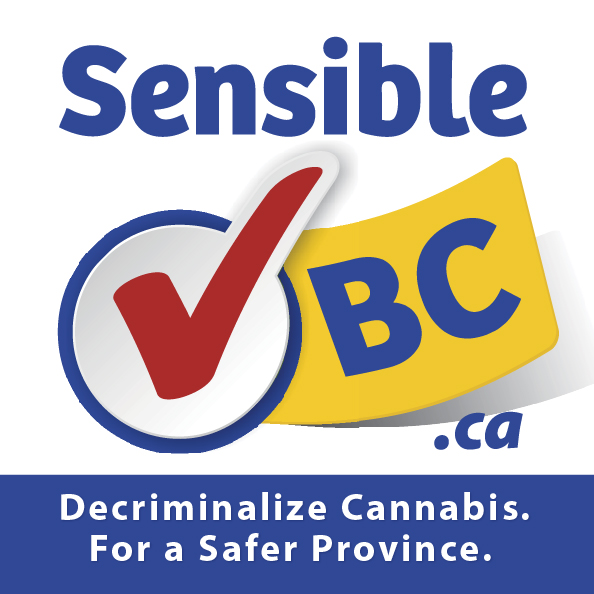Dana Larsen sows seeds of decriminalization across BC
As Canada sits watching the United States reforming its drug laws state by state through voter initiatives, we find ourselves sitting in a vortex sucking our once progressive stance on drugs into a Conservative web of ideology-based laws stemming from early drug prohibition reefer madness. With the introduction of mandatory minimum sentences for drug crimes, which can send a person to jail for growing as few as six cannabis plants, and charges of possession more than doubling since 2004, the consequences for cannabis offences are far more dire than the general public thinks. Cannabis law reform favour has never been higher in Canada. With well over half of Canadians supporting full legalization (57 percent, according to the most recent Angus Reid poll) and a general acceptance of medical cannabis among the vast majority, Dana Larsen and a dedicated group have stepped up to forge a clear path to counter the Conservative government’s archaic stance and use the issue’s momentum and popularity to create real change.
The Sensible BC campaign is “calling upon the B.C. government to pass the Sensible Policing Act, which will redirect all police in the province from making searches, seizures or arrests in cases of simple cannabis possession,” as they state on their website <sensiblebc.ca> Within the Sensible Policing Act, it also calls for the setup of “a public commission to figure out the best path toward a legally regulated and taxed cannabis system in B.C.” Currently, Dana Larsen is on the road through B.C., hitting every community, holding information sessions to raise awareness of the campaign and to build a database of people willing to sign the ballot initiative, in a sort of pre-registration.
In order to have a referendum on the ballot in B.C., the signatures of 10 percent of all registered voters in every single one of the 85 ridings in B.C. need to be collected within a 90-day period, amounting to 400 thousand signatures in total. Should one riding not make the full 10 percent, the initiative will not make it on the ballot. This was recently done successfully with the anti-HST campaign, though it is the only one to have ever succeeded in getting the measure to the vote. By having the pre-registration, the collection of signatures will be made significantly easier by allowing designated signature collectors a list of confirmed supporters that they can visit, and have them sign formally in Sept./Oct. of this year. When signing up online or on registration forms in person, you also have the option to help with the campaign—thousands of volunteers are needed to make this successful.
The tour has helped the campaign’s momentum, garnering a fair amount of media attention and often presenting to packed houses. At the time of printing, Dana will be on Vancouver Island, the Gulf Islands, and the Sunshine Coast. The talks are presented in an easily digestible manner, with open, honest, and educated discussion for all members of the public. They are not “flag waving” events with pot leafs strewn throughout the room—all logos, literature, and posters are presented with a political campaign-type design—in order to appeal to a broad audience. Even a very conservative-minded individual, though one who is willing to listen to and acknowledge facts, will leave convinced that this is the right direction for the province.
This tour and campaign comes on the heels of the Union of B.C. Municipalities’ (UBCM) landmark vote to lobby the federal government to decriminalize cannabis and to study the benefits of its taxation and regulation. Municipal politicians are on board, which is a huge tipping point. While legality remains a federal issue, the provinces maintain the ability to prioritize policing priorities. The Sensible Policing Act will simply amend the BC Police Act. When politicians such as Christie Clark respond to questions about legalization with the easy “it’s a federal issue, I’ll leave it up to them,” they are not being entirely honest. The Firearms Act is an example of the provincial government refusing to enforce a federal law. B.C., along with seven other provinces, did not agree with the Long Gun Registry, so set their police priorities as such. The Sensible Policing Act should be treated in the same manner. Another example is the province fighting the federal government in the Supreme Court for InSight, the safe injection site in East Vancouver, to remain operational as a harm reduction facility—and winning.
While the Sensible Policing Act is essentially a form of decriminalization, it is an important step towards legalization. Many argue that decriminalization is just as damaging as prohibition, as it still allows a criminal element to control the manufacturing and distribution of cannabis, and may impose further financial burdens on people with low incomes, among other things. While these arguments are sound, the other aspects of the Act would help to push toward the next step of legalization. Once the law is passed, besides the police not being able to search, detain, or arrest anyone for possession, the B.C. Attorney General would need to formally demand the federal government to change cannabis laws to allow B.C. to legally regulate cannabis. Following that, it will also force the province to form a commission to hold hearings, study mountains of evidence, and recommend rules and laws to properly facilitate a cannabis industry in the province. With the current Conservative government unwilling to entertain any rational discussion on the matter, this is the best option. It is important to note that during the federal study period of the mandatory minimum sentences for drug crimes, the majority of expert witnesses testifying were against the bill and were largely ignored.
The change in law would also allow police to deal with impaired driving and youth possession in the same way it does alcohol, without bringing criminal records that can hinder employment and travel into the equation. While many will argue that the youth will have more access to cannabis and that we are sending the wrong message, most high-schoolers will assert that it is currently easier to obtain cannabis than alcohol.
Once the benefits of a taxed and regulated system are realized through actual trial, perhaps other provinces will be inclined to pursue similar measures. It is encouraging to have dedicated people working tirelessly toward drug reform, but Dana and his campaign crew will not be able to do it alone. Many volunteers are needed, and most importantly signatures and votes are needed. If you are not registered to vote, do so now.
To register to vote in B.C. visit <eregister.electionsbc.gov.bc.ca>
For further information on Sensible BC and to pre-register for the referendum visit <sensiblebc.ca>
By Andrew Brown



